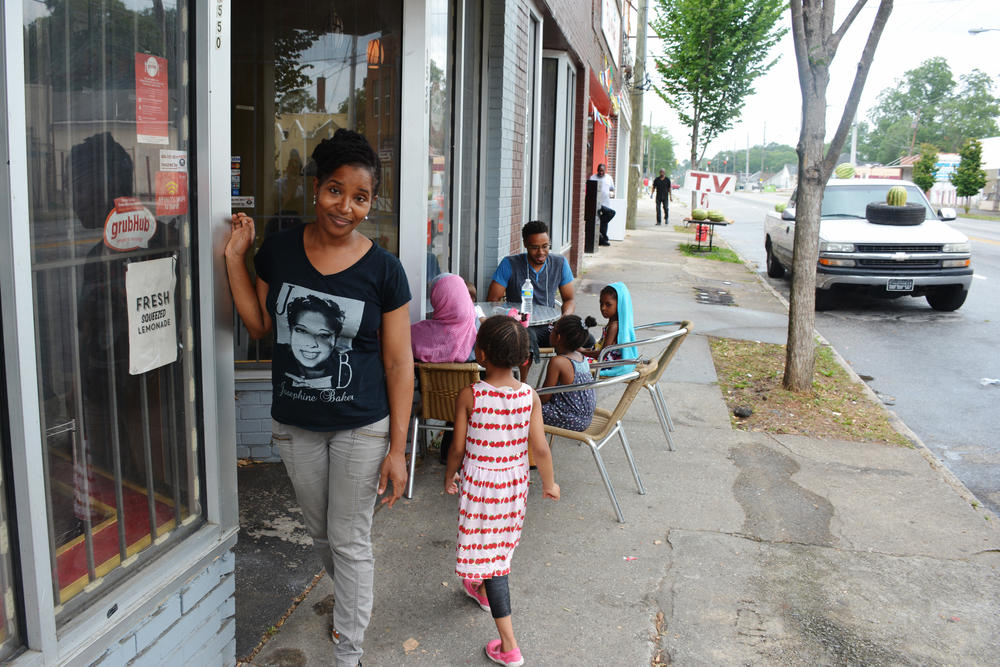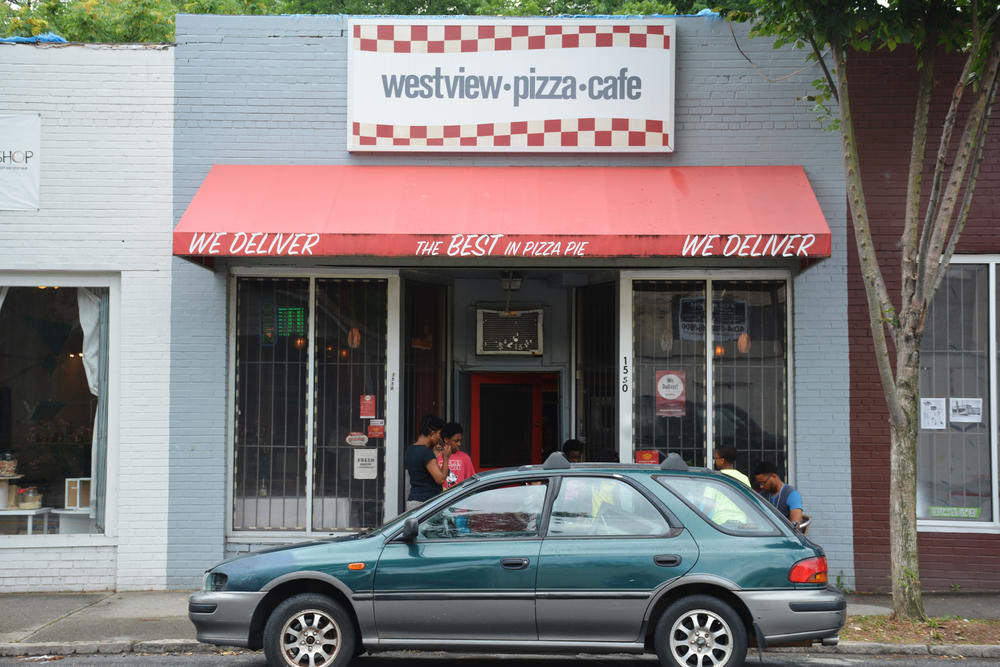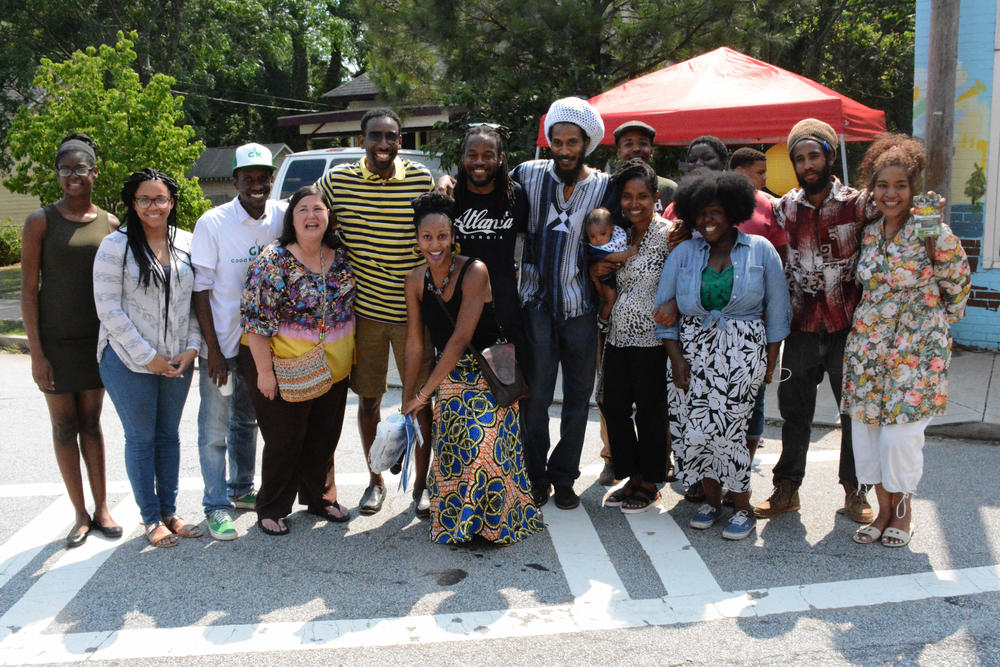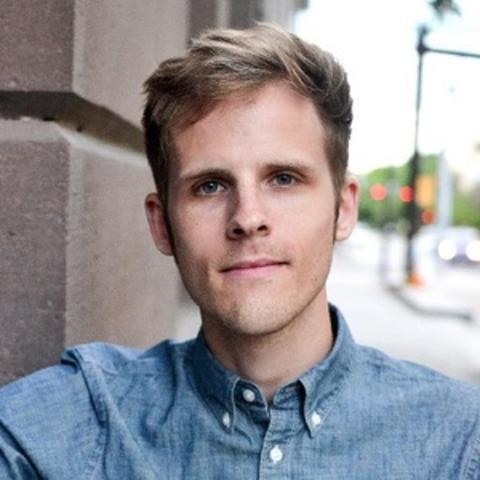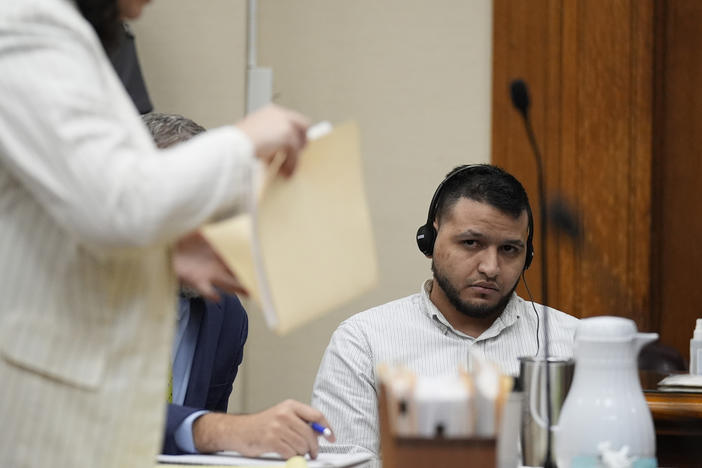Section Branding
Header Content
Taking Care With Business: Can Entrepreneurs Solve Social Problems On Atlanta’s West Side?
Primary Content
Every entrepreneur starts by identifying a problem. Keitra Bates, who owns Westview Pizza Cafe southwest of downtown Atlanta, is no different.
“There is a steamroller of new interest in this area,” Bates said. “And they’re like: ‘The houses are beautiful. Look at this empty warehouse, we’re going to turn this into a Whole Foods.’ What does that mean for Miss Crowder?”
Miss Crowder is a home cook and makes sweet potato pies that her husband sells at different spots around the neighborhood. (I’ve had a piece of the pie. It’s quite good.)
Bates worries a changing neighborhood will put cooks like Crowder out of work, but, entrepreneur that she is, Bates thinks she has a way to keep that from happening.
“Our aim with Marddy’s is to basically put the home chefs in a position where the newcomers will encounter them,” Bates said.
Marddy’s, which Bates said is short for “Market Buddies,” would legitimize home chefs like the Crowders by giving them a storefront, a commercial kitchen, and food safety training.
Bates explained her idea to me on a recent afternoon at her restaurant on busy Ralph David Abernathy Boulevard, where she told me more about the neighborhood’s food culture. She said the area is full of home cooks making money from their goods.
Take Mr. Crowder, for example, who sells his wife’s sweet potato pies:
“He’s not walking up and down the street,” Bates said. “He’s getting out of his car and getting inside all of the little businesses. If you notice, there’s no ‘No Solicitation’ sign up because we welcome that.”
But selling food without a license isn’t legal, and Bates acknowledged the thought of buying a pie from a stranger might seem odd to some people.
Marddy’s would solve those problems. Bates already has an idea of where in nearby Ashview Heights she’d like to open the storefront. If Marddy’s is successful, Bates wants to replicate it in other west side neighborhoods. But first, she needs to get the store up and running, and, to do that, she’ll have some help.
That help will come from the Center for Civic Innovation and their Westside Innovation Lab.
“The Westside Innovation Lab is investing capital, business development, and mentorship to individuals within west side neighborhoods that have ideas on solving social challenges in their own backyard,” said Rohit Malhotra, the founder of CCI, during a recent interview at the group’s offices in Atlanta.
The lab, which launched earlier this month, has eight finalists, each with their own idea for a business that solves some kind of social problem. Think of the program like a six-month startup incubator for entrepreneurs who want to make money while making good.
One participant wants to open a neighborhood coffee shop to provide jobs and job training, another wants to use an existing neighborhood barbershop to do the same, yet another wants to provide STEM mentoring to girls in public school.
Then, there are Abiodun Henderson with the Westview Community Garden and Shawn Walton of WeCycle Atlanta.
Henderson wants to launch a program called Gangstas to Growers that would provide agricultural jobs and job skills to at-risk youth.
Learn more about Henderson's Gangstas to Growers program.
Walton wants to start a business selling pallet gardens and create a mobile version of his youth-engagement-focused bicycle co-op.
Learn more about Walton's plans to create a mobile version of WeCycle.
The programs are grassroots, bottom-up, and created by people who live and work in the neighborhoods they want to serve.
“If we actually invested in community ideas on how to improve their own communities with the same risk tolerance we give to any type of other investment, our ROI, our return on that investment would not only be social,” Malhotra said. “The return on that investment would be economic.”
During the course of the program, participants will receive up to $10,000 in seed money to launch their businesses. Malhotra was quick to point out that money isn’t charity.
"Philanthropic investing depends on outputs not outcomes,” Malhotra said. “So, what you’re worried about is: do you have the feel-good stories? That is not well aligned with: are we solving the problem?”
Michael Rich is a political science professor at Emory University who studies community development.
“Charity works,” he told me during a recent conversation. “It just depends: works towards what?”
He said charity can provide temporary assistance to neighborhoods but isn’t good at the long-term support needed to turn them around.
Rich said there are also risks to investing in entrepreneurs.
“It’s a big challenge of going from an idea to a small company,” he said. “There are a lot of hurdles along the way, and we need to figure out ways to be more effective in smoothing that pathway so that these small startups can blossom into companies that end up adding jobs to the neighborhood.”
Businesses start and fail all the time, and for social entrepreneurs there’s more on the line than a paycheck: there’s the social impact their businesses provide.
For Keitra Bates, there are the futures of her neighborhood’s home chefs.
“If we aren’t consciously trying to preserve that food culture, it’s going to disappear,” she told me back in her restaurant, where she had recently welcomed in a group of neighborhood kids for a snack and a break from the summer heat.
And for Bates, that all comes back to Miss Crowder’s sweet potato pies.
“It absolutely is a cultural treasure to have this, and the thought of us not having access to that anymore,” she said. “Let’s just say, I don’t want to think of a world without a sweet potato pie like that.”
If her idea is a success, she might not have to.
Secondary Content
Bottom Content

